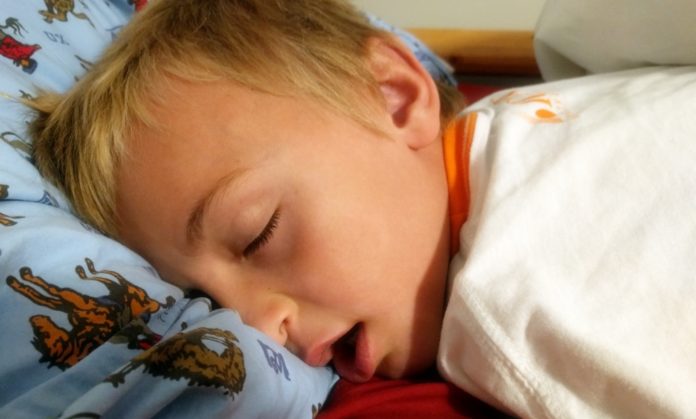According to the University of California, Los Angeles Sleep Disorders Center, snoring is commonly reported in most children. Almost 20% of healthy children snore from time to time which is not usually indicative of any serious health issue.
While experts suggests not to get alarmed in most cases here’s why one must not take it lightly if the problem persists.
Statistics report that close to 7 to 10 percent of kids snore every night, however there are signs that one must look out for in their kids to understand whether or not the snoring pattern is normal. Snoring in kids may also be indicative of a sleep or breathing problem.
“Breathing is an automated process, controlled by the brain. By monitoring chemical levels in the blood, the brain can work out if the breathing is working properly,” Kidspot quoted ENT expert David McIntosh as saying.
There are reasons why babies snore, and not all of them are cause for concern. McIntosh noted that if the signals to the brain indicate that something is wrong, the brain can alter the rate of breathing to compensate.
“The problem of airway obstruction,which is what happens when you are snoring,though is that even if the brain recognises there is a problem, increasing the effort of breathing achieves very little,” he added. “Furthermore, blockage to breathing results in oxygen levels in the blood dropping. This is something the brain does not like very much.”
Through his research and through observing children who habitually snore, McIntosh has seen evidence of reduced attention, higher levels of social problems and anxiety, depressive symptoms, cognitive dysfunctions, memory problems and problems with thinking through things logically.
In a much larger study conducted, which monitored 1,000 children over a period of six years, it was found that children who snored, breathed through the mouth, or had obstructive sleep apnoea or apnea((OSA) is a common, serious condition that can make kids miss out on healthy, restful sleep. If left untreated, OSA can lead to learning, behavior, growth, and heart problems)had a higher incidence of the behavioural issues listed above, and were 50 to 90 percent more likely to develop attention deficit hyperactivity disorder (ADHD),like symptoms than normal breathers.
ADHD can lead to problems at home and school and affect your child’s ability to learn and get along with others.
It’s normal for children to occasionally forget their homework, daydream during class, act without thinking, or get fidgety at the dinner table. But inattention, impulsivity, and hyperactivity are also signs of attention deficit hyperactivity disorder (ADHD).
The signs and symptoms of ADHD typically appear before the age of seven. However, it can be difficult to distinguish between attention deficit disorder and normal “kid behavior.”
If you spot just a few signs, or the symptoms appear only in some situations, it’s probably not ADHD. On the other hand, if your child shows a number of ADHD signs and symptoms that are present across all situations at, home, at school, and at play,it’s time to take a closer look.
The National Sleep Foundation, US mentions that at times regular snoring may also be a result of a respiratory infection or an allergy. In the year 2002, the American Academy of Pediatrics recommended all American children to be screened for snoring to differentiate normal primary snoring from obstructive sleep apnea syndrome in kids.


























